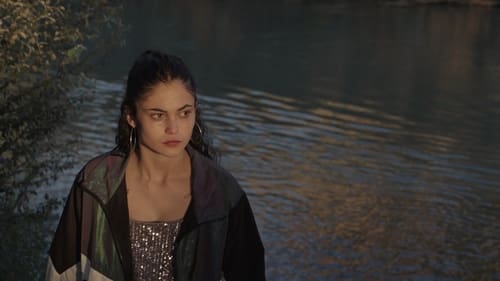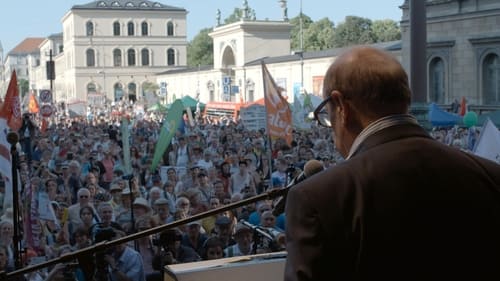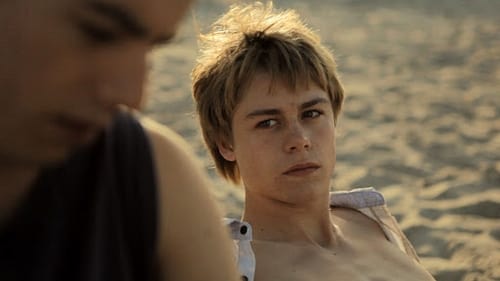
Sound Mixer
Surrounded by social and political chaos in Lima during the summer of 1992, Lucia, Aurora, and their mother, Elena, plan to leave and seek opportunities in the United States. Their farewell involves reconnecting with their estranged father, Carlos, adding turbulence to the regrets, hopes, and fears of their emotional departure.

Sound
Colombine finally wants to know who her father is. But her mother vehemently refuses to tell her. With the help of Mathilde the greengrocer, Colombine obtains a magic potion that transports the 13-year-old several months back in time to the "Fête des Vignerons" wine festival in Vevey. There, Colombine must summon up all her courage to uncover the secret of her father.

Sound
It is summer in a small village in south-eastern Spain. A storm threatens to cause the river that runs through it to overflow again. A popular old belief claims that some women are predestined to disappear with each new flood, because they have the “water inside”. A band of young people is trying to overcome the weariness of a summer in the village that smells of death by smoking, dancing, and lusting after each other. In this electric atmosphere that precedes the storm, Ana and José live a love affair until the storm bursts.

Sound
Between 2002 and 2010, more than 10,000 civilians were killed by the Colombian army and thrown into mass graves—with the aim of demonstrating the success of the offensive against the FARC. Felipe Monroy offers a voice to the families of the victims of this unpunished state crime, thereby creating a heartrending film that stands against the worst crime of all: oblivion.

Sound
한 소녀가 목숨을 끊는다. 수녀원에서 지내던 소녀의 동생 엘리자베스는 집으로부터 온 전갈을 듣는다. 이제 맏이가 된 그는 집안의 노동력에 도움을 줘야 한다. 돌아가기 싫은 소녀는, 자신의 기도가 어디서 잘못됐는지 묻는다. 엘리자베스와 세 청년은 숨 막히는 공간에서 벗어나려고 몸부림치지만 매번 벽에 가로막힌다.

Sound
Mexico, March 2015. Carmen Aristegui, incorruptible journalist, has been fired from the radio station where she has worked for years. Supported by more than 18 million listeners, Carmen continues her fight. Her goal: raising awareness and fighting against misinformation. The film tells the story of this quest: difficult and dangerous, but essential to the health of democracy. A story in which resistance becomes a form of survival.

Sound
Viviana and Yandris weave red and yellow yarn into bags. In the distance we hear the hammering of machines, the wail of sirens and the thunder of explosions.

Sound
Ambassade questions the role of diplomatic relations and territorial representation. Through the prism of the American hostage crisis in Iran between 1979 and 1981, this film focuses on Switzerland’s role as an intermediary in resolving this international conflict. Pascal Décosterd was a young Swiss diplomat sent to Tehran in 1979. Today, recently retired, he is embarking on a journey to try to understand the events of which he was one of the actors. Flavio Meroni was number 2 of the Swiss Embassy in Iran, today he is writing a book on negotiations to free the hostages. In their company we visit places in the United States, Iran and Switzerland, we meet the protagonists and retrace the different stages of these three years that shaped a new global balance. Behind the scenes of these events, where small and great history mingle, Ambassade offers insights into the importance of the human being at the heart of major diplomatic mechanisms.

Sound
After the death of her grandmother, filmmaker Juliana Fanjul has to return to Mexico City, where she realizes how unfair is the relationship between housemaids and their employees.

Sound Mixer
In 1964, Che Guevara asked the young Jean Ziegler to stay in Switzerland to fight in the "Monster brain" capitalist. Since then, Jean Ziegler nerve stops fighting against injustices as a public writer, a speaker and as a Kofi Annan collaborator. During a trip to Cuba, his ideas are challenged by what he discover on the island.

Sound Editor
In 1964, Che Guevara asked the young Jean Ziegler to stay in Switzerland to fight in the "Monster brain" capitalist. Since then, Jean Ziegler nerve stops fighting against injustices as a public writer, a speaker and as a Kofi Annan collaborator. During a trip to Cuba, his ideas are challenged by what he discover on the island.

Sound

Sound Editor
Fragment 53 is a feature-length documentary film on war considered in its necessary and universal dimension, faced both as an actual and archetypical event.

Location Sound Recordist
The village of Tamaquito lies deep in the forests of Colombia. Here, nature provides the people with everything they need. But the Wayúu community's way of life is being destroyed by the vast and rapidly growing El Cerrejón coal mine. Determined to save his community from forced resettlement, the leader Jairo Fuentes negotiates with the mine's operators, which soon becomes a fight to survive.

Sound Mixer
Thirty female prisoners share the convicts’ ward of Tuilière Prison at Lonay. More than half of them have one or more children being raised elsewhere: with a sister, in a foster family, or – further away still – in their countries of origin. In portraying some of these women, the film sheds light on these mothers and the bond that ties them to their children.

Sound Designer
In this deserted former Nazi holiday camp and communist military complex, teenagers Jan and Matthieu embark on an adventure that could change everything. Whilst exploring their surroundings they confront their identities and ultimately put their friendship at risk.

Sound Mixer

Sound Editor

Sound Engineer
This documentary offers a complex portrait of Hollman Morris, the Colombian war journalist whose multiple award-winning news show Contravía is one of the few local current-affairs programs that refuses to pander to President Alvaro Uribe's staunchly authoritative government. While most television viewers in Columbia opt for variety shows and soap operas, citizens in search of suppressed truths tune in to Contravía to hear the latest news about forced disappearances, secret mass graves, and various other atrocities taking place all across the countryside. But when you live and work in the country that Reporters Without Borders claims is one of the most dangerous places in Latin America for a journalist to work, denouncing human rights abuses can be a dangerous game. Yet despite the danger to both himself and his family, Morris remains convinced that the situation in Columbia will never been improved if outspoken media figures like himself simply disappear into exile.

Sound
An elegy to a teacher in the middle of the Covid-19 pandemic. A film about longing and loss.















